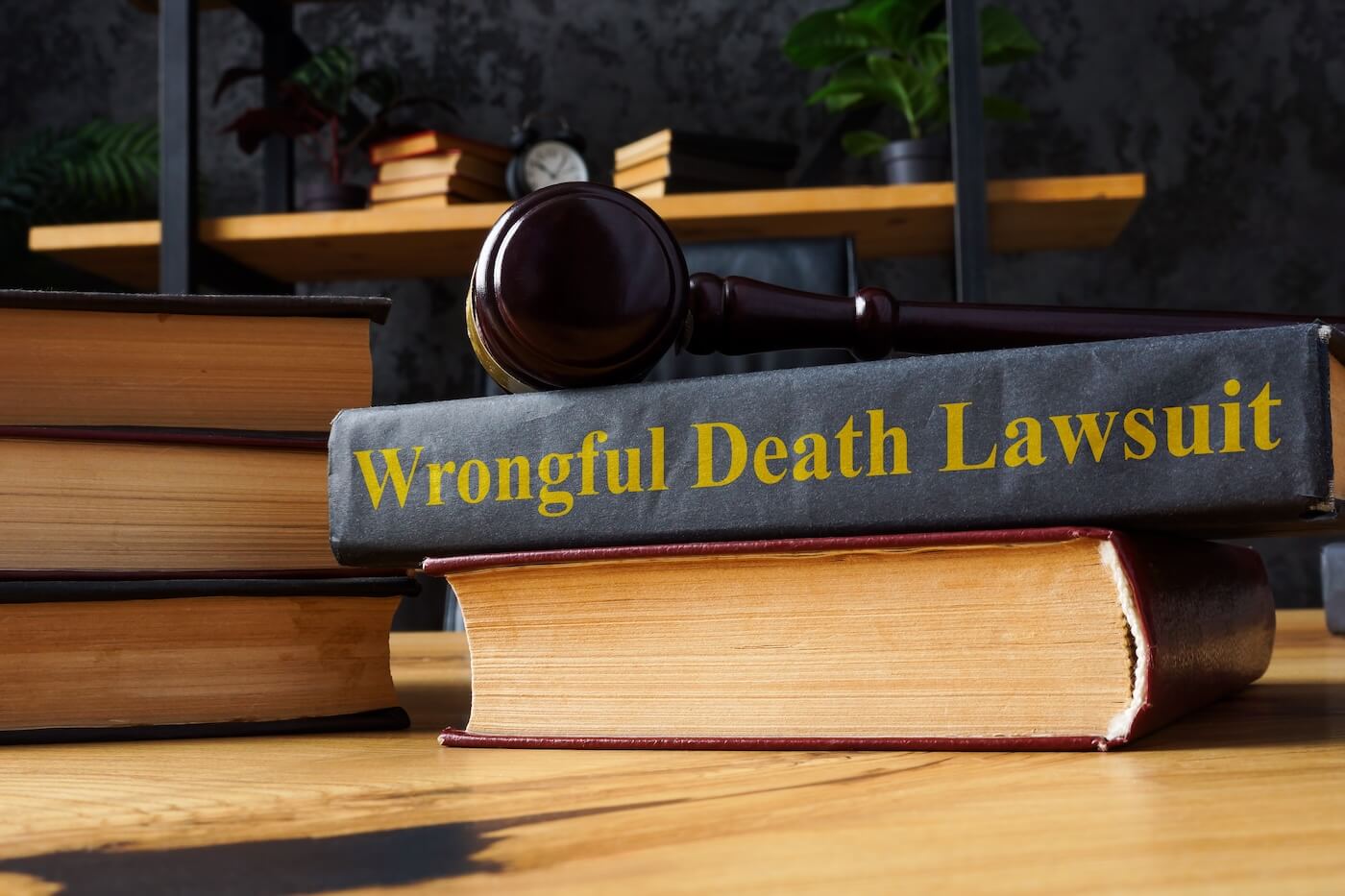What to Do After a Crash with a Commercial Truck

Written by Matthew Weidinger

After a crash with a commercial truck, it is crucial to ensure everyone’s safety, notify authorities, and gather detailed information about the incident. Quick action can make a significant difference during these high-stress situations. Documenting the crash, seeking medical attention, and avoiding discussions about fault at the scene can help protect legal rights.
Taking photos, exchanging details with the truck driver, and identifying any witnesses are also important steps. Commercial truck accidents often involve complex insurance policies, company representatives, and federal regulations, so staying organized with records and statements is key.
Understanding what to do immediately after the accident will not only support your physical recovery but also prepare you for dealing with insurance companies and potential legal claims. These actions set the foundation for protecting yourself and addressing the challenges unique to commercial truck crashes.
Immediate Steps After a Truck Accident
Taking the right actions after a commercial vehicle crash can have a significant impact on safety, evidence collection, and future claims. Safety, documentation, and gathering information must be addressed without delay.
Ensuring Safety and Contacting Emergency Services
The first priority is always safety. Move vehicles out of the flow of traffic if possible and only if it is safe to do so. Turn on hazard lights and set up warning triangles or flares if available to alert other drivers.
Check all involved parties for injuries. Even minor crashes can result in delayed symptoms. Call 911 or local emergency services regardless of injury severity. Clearly report the location, the number of people involved, and any immediate hazards such as fuel leaks.
Remain calm and follow first responders’ instructions. Do not leave the scene unless directed by authorities. Wait for police and emergency personnel to arrive to ensure proper documentation and assistance.
Documenting the Accident Scene and Gathering Evidence
Preserving evidence is essential. Use a camera or smartphone to take photos of the vehicles’ positions, damage, license plates, and road conditions from several angles. Capture nearby street signs, skid marks, and weather conditions.
Write down the name, company, and contact information of the truck driver. Record the truck’s license number, the company name on the cab or trailer, and the USDOT number if visible. Note the time, date, and exact location of the crash.
If it is safe to do so, collect a copy or photo of the truck driver’s insurance, vehicle registration, and commercial driver’s license. Store photos and notes together for easy reference.
Collecting Witness Information and Statements
Identify anyone who saw the accident. Ask for their names, phone numbers, and brief written or recorded statements describing what they observed. Independent witness accounts can be valuable for verifying details later.
If witnesses agree, use a smartphone to record quick video or audio statements, being sure to get their consent. Write down their observations if recording is not possible.
Organize all witness details—including the time and place they were present—in a list or table so nothing is lost or confused. Promptly sharing this information with investigators and insurance representatives helps protect everyone’s interests.
Navigating Legal and Insurance Procedures
Dealing with a commercial truck crash involves taking clear truck accident legal steps and understanding what to expect with insurance claims. Preparation and attention to detail can streamline negotiations and reduce complications during an already stressful time.
Understanding Your Legal Rights Following a Truck Accident
Victims of truck accidents often face complex regulations involving both state and federal law. Knowing one’s legal rights is key, including the right to compensation for medical costs, lost wages, and other damages.
A legal professional can help clarify liability, identify responsible parties (driver, trucking company, or others), and explain how comparative fault might affect the case. Rights also include refusing to sign releases or give statements before getting post-crash commercial vehicle advice from an attorney.
It’s essential to document evidence early—collect police reports, photographs, and witness details. Many trucking companies have powerful legal teams, so understanding rights and timelines for filing claims protects an individual’s opportunity to pursue fair compensation.
Avoiding Common Mistakes in Post-Crash Statements
What a person says after a truck crash can affect both legal and insurance outcomes. Mistakes such as admitting fault, speculating about injuries, or providing too many details can limit available compensation.
When speaking with the trucking company, insurers, or police, it is best to stick to the facts. Avoid discussing fault or offering opinions. Record any communication and never sign documents or provide recorded statements without consulting a legal professional.
Some common pitfalls include:
- Apologizing at the scene (can be seen as admitting fault)
- Saying “I’m fine” before understanding medical impact
- Giving written or recorded statements too soon
Careful communication prevents misunderstandings or misinterpretation that could weaken a future claim.
Communicating Effectively with Insurance Companies
Navigating insurance negotiations after a commercial truck accident requires both caution and preparation. Insurance adjusters often seek to settle quickly, sometimes for less than a claim’s true value.
Key tips for dealing with insurers:
- Organize all documentation: medical records, repair estimates, bills, and correspondence.
- Be concise, factual, and avoid speculation about fault or injuries.
- Request information in writing and keep copies of all communications.
Understanding the types of coverage (e.g., liability, underinsured/uninsured, personal injury protection) is crucial for knowing what compensation may be available. If negotiations become difficult, a legal professional can manage communications and help protect a claimant’s interests.
Working with Smith & Weidinger, PLLC After a Truck Accident
Smith & Weidinger, PLLC helps truck accident victims address the legal challenges that come after a crash. Our team supports clients from the initial filing of claims to representation in court, focusing on client rights and compensation.
Comprehensive Legal Representation and Guidance
Smith & Weidinger, PLLC offers full legal representation in truck accident cases. Our attorneys assess the crash, investigate evidence, and review police reports, medical records, and trucking company documents. This step-by-step approach addresses key factors like driver logs, vehicle maintenance histories, and company safety practices.
Clients receive clear information about liability, insurance policies, and damages. Our legal team outlines options for seeking compensation under Texas and federal law. They explain timelines, develop strategies based on each case’s circumstances, and answer questions promptly.
Clients benefit from having lawyers who handle negotiations, gather evidence, and ensure that critical deadlines are met. This support allows victims to focus on recovery while the legal team advocates on their behalf.
Support with Legal Paperwork and Court Proceedings
Smith & Weidinger, PLLC guides clients through every stage of legal paperwork. We draft and file insurance claims, gather supporting documents, and complete forms required by courts and insurance companies.
Our firm clearly explains legal terms and requirements, helping clients avoid mistakes that could affect a claim. We create checklists to track paperwork and offer reminders about important dates.
If litigation becomes necessary, Smith & Weidinger, PLLC prepares the case for trial. They submit the required documents, arrange witness testimony, and represent clients in hearings and court proceedings. Detailed preparation improves case outcomes and reduces stress for clients who are unfamiliar with the legal process.
Advocating for Client Rights and Fair Compensation
Our attorneys at Smith & Weidinger, PLLC focus on protecting their clients’ legal rights throughout the truck accident claim process. They negotiate with insurance companies and trucking firms to seek fair compensation for injuries, property damage, lost wages, and related costs.
Our representation includes thorough evaluation of all aspects of a claim, including potential long-term effects of injuries. Our firm pushes for settlements that cover both immediate and future needs, rather than accepting initial offers that may undervalue a claim.
When negotiation does not result in a suitable offer, Smith & Weidinger, PLLC is prepared to take cases to court. Our approach is direct and client-centered, ensuring fair treatment and steadfast advocacy at every stage.

Securing the Compensation You Deserve
Victims of commercial truck crashes often face major financial burdens, including medical expenses and loss of income. Understanding available compensation and how to prove eligibility can make a significant difference in the outcome.
Types of Compensation Available After a Commercial Truck Accident
Commercial truck accident victims may seek several types of compensation, depending on the losses suffered. These include:
- Medical expenses: Costs related to emergency care, surgeries, hospital stays, medications, therapy, and ongoing treatment.
- Lost wages: Compensation for time missed at work due to injury, including potential future earnings if the injury results in long-term disability.
- Property damage: Repair or replacement costs for the damaged vehicle and any belongings inside at the time of the crash.
- Pain and suffering: Non-economic damages for physical pain, mental anguish, and reduced quality of life.
- Other out-of-pocket costs: Expenses like transportation to medical appointments or the cost of hiring help during recovery.
Compensation is not automatic. Victims must provide clear documentation and must calculate these losses accurately for the best possible recovery.
Building a Strong Case for Maximum Recovery
A strong case is crucial for securing full compensation after a truck accident. The process often starts with gathering evidence, such as photographs, police reports, witness statements, and medical records.
Working with an attorney can help identify all liable parties (such as the driver, trucking company, or manufacturer) and handle negotiations with insurers. Attorneys know how to compile proof of damages to support each category of claim.
Victims should keep detailed records of their injuries, treatment, and any communication with employers about missed work. Promptly reporting all injuries and preserving evidence are key steps.
Building a well-documented case increases the likelihood of fair settlements, and may improve the chances of successful litigation if necessary.
Note: The information provided in this blog post has been compiled from publicly available and secondary sources. While we strive for accuracy, some details may become outdated or contain inadvertent errors. If you believe any information is incorrect or requires updating, please contact Smith & Weidinger so that we may review and make the appropriate corrections.
Disclaimer: This blog post is for informational purposes only and is not intended as a solicitation for business. The photo used is not from the scene of the incident described. Viewing this content does not create an attorney-client relationship with Smith & Weidinger. If you have been injured in an accident, please seek immediate medical attention and then consult with a qualified attorney to discuss your legal rights and options.










